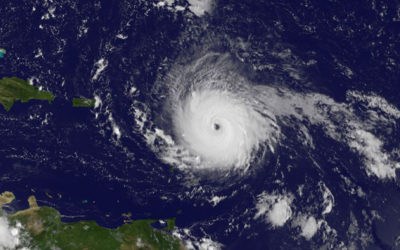
With two very powerful storms like Hurricane Irma and Hurricane Harvey recently wreaking havoc near the Gulf of Mexico, the question arises: what would happen to Boston if it were hit by a storm of that magnitude?
Hurricane Harvey in particular produced record amounts of rainfall, flooding areas of Southeast Texas with more than 40 inches of rain in less than 48 hours, according to the National Weather Service.
Prior to these alarming weather events, the City of Boston has already started to think about this issue with the Climate Ready Boston plan, released in 2016. The plan calls for the resilience and adaptability of infrastructure within the city so they would be able to withstand the flooding and other accompanying conditions brought on by large storms.
Mia Mansfield, the Climate Ready Boston program manager, said although the plan is still in the works after its release in 2016, the City is now in the process of creating and implementing smaller plans for more at-risk areas like East Boston, Charlestown, South Boston and Dorchester.
Mansfield said these areas are particularly vulnerable to flooding due to their shaky foundations.
“Areas along the waterfront, specifically in land that was built on fill earlier in Boston’s history, are the most low-lying areas of the city and areas that would be most at-risk,” Mansfield said. “[These areas] are currently vulnerable to flooding and that vulnerability is only going to increase over time if as projected the sea level [continues to rise].”
After major storms like Irma and Harvey, Mansfield said it is especially important now to start planning for a potentially severe storm in the Boston area.
“We want to make sure that infrastructure is also able to adapt to these changes over time and is able to be elevated … in case sea levels rise higher,” Mansfield said.
Stephen Flynn, the founding director of the Global Resilience Institute at Northeastern University, said Boston is less at risk of a direct hit by a hurricane due to atmospherics in the area and the gulf stream pushing the storm out into the Atlantic Ocean.
However, Flynn said tracking storms in the area can be tricky, as it is difficult to tell if a hurricane will make landfall in the northeast or go back out to sea until it has passed the point of Cape Hatteras, North Carolina, a sort of “switching station” for hurricanes in the region.
Once it has passed that point, Flynn said a storm could theoretically reach Boston in under 24 hours, making planned evacuations in the city challenging.
“The challenge … is you’re not going to evacuate if there’s a very low probability that the storm is going to hit you,” Flynn said. “There’s a lot of cost and disruption and in fact, lives are often put at risk by evacuating people.”
Though Flynn said climate change may not have an effect on the number of storms occurring in the area, evidence is sufficient that it has an effect on the magnitude and strength of storms caused by the warming of ocean waters.
“There’s still somewhat of a debate as to whether we’ll see there will be more frequent hurricanes, associated with climate change,” Flynn said. “There’s virtually no debate that when we have them, they’re likely to be more intense, like we’ve seen with Harvey, and also like we’ve seen now with Irma.”
Several Boston residents said the recent trend in large storms is alarming and they are unsure how Boston would approach a similar situation.
Janee Chambers, 30, of Dorchester said preparing for a direct storm hit in Boston would be “mass chaos” as the city is not prepared for a situation like this.
“We don’t have the proper tools as far as our city officials explaining to us evacuation routes,” Chambers said.
Sehar Khalid, 23, of South Boston said she trusts the city would be able to fix itself after a direct hurricane hit.
“We would definitely face some serious destruction but I think we would have the capacity to bounce back,” Khalid said.
Lauren Little, 29, of Allston said the increased size of these hurricanes compared to previous ones is alarming.
“It is also an effect of climate change and in a way, it’s kind of a wakeup call that we’ve got to do more to protect the planet and to protect ourselves,” Little said. “Hopefully, this doesn’t become the new norm, but maybe it will be.”
CORRECTION: A previous version of this article did not include detailed information on the nature of hurricanes in the Boston area provided by Stephen Flynn, the founding director of the Global Resilience Institute at Northeastern University, in his interview. The updated version has been edited to include this additional information.






















































































































